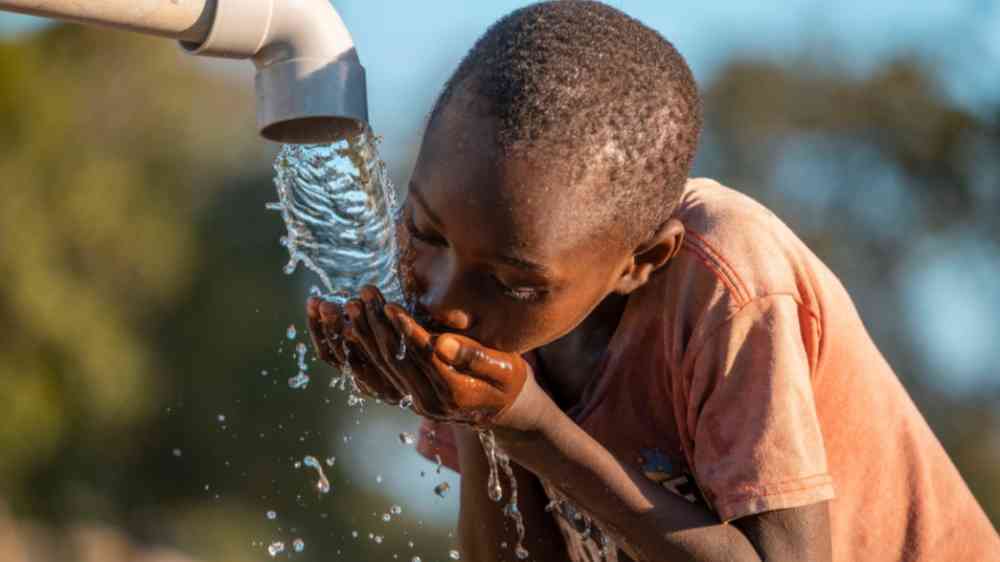Sub-Saharan Africa faces unique challenges in safeguarding children’s futures amid climate and demographic shifts

Children in sub-Saharan Africa are at heightened risk in a rapidly changing world affected by extreme climate crises, shifting population dynamics, and widening technological gaps, according to UNICEF's flagship report released on World Children's Day.
The State of the World's Children 2024: The Future of Childhood in a Changing World projects that by the 2050s, climate and demographic pressures will present profound challenges to children across the continent. Population growth will remain high but the share of children compared to adults is expected to decline from 50 per cent in the 2000s to below 35 per cent in the 2050s. As we move further into the 21st century, the future of childhood will increasingly be in Africa: By 2100, there will be more children on the continent of Africa than anywhere else in the world.
The report outlines three major global megatrends - demographic change, climate and environmental crises, and frontier technological - and highlights their disproportionate impact on vulnerable regions like sub-Saharan Africa.
"Children are experiencing a myriad of crises, from climate shocks to online dangers, and these are set to intensify in the years to come," said UNICEF Executive Director Catherine Russell. "The projections in this report demonstrate that the decisions world leaders make today - or fail to make - define the world children will inherit. Creating a better future in 2050 requires more than just imagination, it requires action. Decades of progress, particularly for girls, are under threat."
Africa has made important gains for children in recent decades, but major issues persist, particularly the learning crisis. If Africa does not do more to develop the skills and enormous potential of its children and young people, it risks squandering the possibility of the demographic dividend offered by its youthful population.
The climate crisis poses immediate threats, with predictions that the 2050s will see children in sub-Saharan Africa increasingly exposed to extreme weather, including extreme heatwaves and river floods. Climate hazards will disproportionately affect children with limited access to climate-resilient shelter, cooling infrastructure, health care, clean water and education.
Sub-Saharan Africa is also one of the regions with the starkest digital divide. In 2024, internet access is nearly universal in high-income countries, while only 26 per cent of people are connected in low-income countries. This gap restricts children's access to essential digital skills and hinders future opportunities, as children and youth struggle to use digital tools effectively in education and employment. By 2030, more than 230 million jobs in sub-Saharan Africa will require digital skills.
Despite these challenges, there is hope. With increased investment in education, life expectancy and educational access in sub-Saharan Africa are projected to improve. The report projects that nearly 96 per cent of children globally will have at least primary education by the 2050s - a trend UNICEF is supporting across Africa.
UNICEF's report calls for urgent measures to navigate the three megatrends, including:
- Investing in sustainable, resilient cities and essential services for children.
- Expanding climate resilience in infrastructure, technology, and social systems across sub-Saharan Africa.
- Providing connectivity and safe, accessible technology for all children.
This year's World Children's Day, themed "Listen to the Future," highlights children's voices from around the globe, including Sub-Saharan Africa, where children express their hopes for safety, education, and protection from climate hazards.
"World Children's Day is a moment for leaders to demonstrate their commitment to the rights and wellbeing of every child," said Russell. "We can shape a better future for tomorrow's children, and we have to get started today."